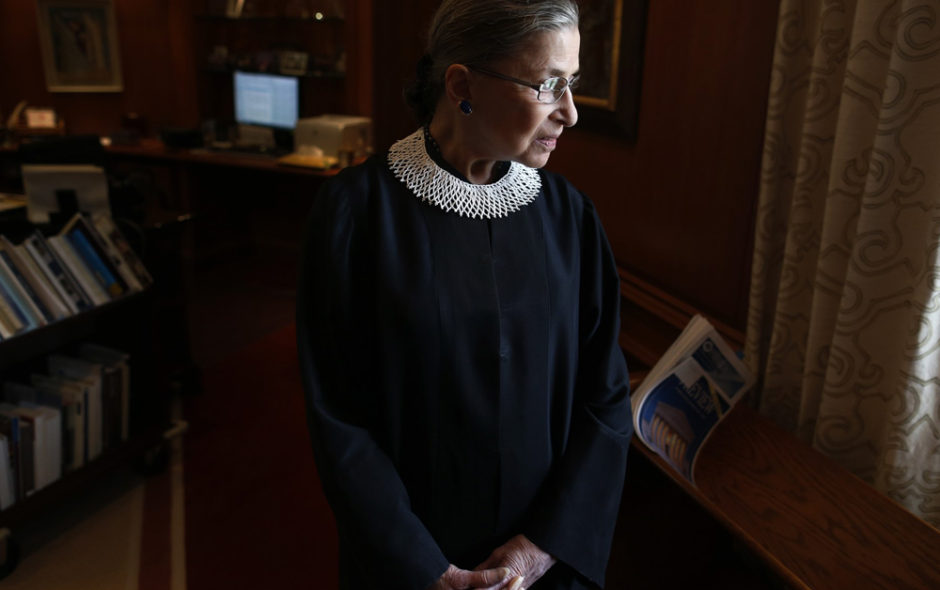Julia Cohen and Betsy West’s documentary RBG — about the formidable Supreme Court Associate Justice Ruth Bader Ginsburg — is a conventional, hagiographic documentary that nonetheless paints an informative, inspiring portrait of its legendary subject, who, at the age of 85, can do push-ups and full-minute planks(!). Her contemporaries — among an impressive list of talking heads — joke that they can’t do even half of a push-up.
The film accumulates a series of comments — from the likes of Bill Clinton, Gloria Steinem, biographers, and even Republicans rankled by her liberal positions — that, if not in the key of outright adoration, or professional praise, demonstrate respect for a woman whose rise to power in the American justice system seems nothing short of miraculous.
But it is not an inexplicable rise, as Cohen and West demonstrate. Ginsburg’s status is the result of a lot of grit, determination and hard work. Ginsburg graduated from Harvard Law School as one of nine women in a class of 500 men, only to find herself without a job while male peers were snapped up by firms. The film details the multiple roles she encapsulated while establishing her career — taking care of her sick husband, Marty, who had testicular cancer, teaching law, and writing/editing for various legal publications, including the Harvard Law Review — and how she never slowed down or gave up. Eventually, Ginsburg found her calling in civil-rights cases in which women were unfairly discriminated against.
Her first landmark case before the Supreme Court was Frontiero v. Richardson, in which she successfully argued that the female plaintiff, Sharron Frontiero, a U.S. Army woman lieutenant, should receive the same housing allowance as male lieutenants. A few hundred cases later, Ginsburg had done more than her fair share for second-wave feminism by greatly improving the rights of women in the U.S. Her subsequent judicial career began in the 1980s, and by 1993, President Bill Clinton appointed her to the Supreme Court. There, she continuously fought for gender equality. As the film points out, Ginsburg’s moderate stance allowed her to delicately compromise with the more conservative justices to win for the causes she most valued, including abortion rights.
RBG is commendable in portraying not only Ginsburg’s monumental career but the role model she’s become for a new generation of feminists. Her status as a meme-ified “notorious” feminist icon is talked about in glowing terms by all the talking heads — she’s a superhero, in Steinem’s words. The film also touches on Ginsburg’s ability to not only work with conservative-minded peers and even befriend them, on occasion — Ginsburg and Antonin Scalia bond over a shared love of opera.
Ginsburg proves to be both an easy and difficult documentary subject. Her career speaks for herself — it’s questionable whether or not her Wikipedia article would suffice on the subject, rather than watching a 90-minute film — but the wit and colour with which Cohen and West bring to their film makes RBG a solid, unchallenging viewing experience for American political nerds who will soak up the details, and a good advertisement for Ginsburg’s recent biography Notorious RBG.

